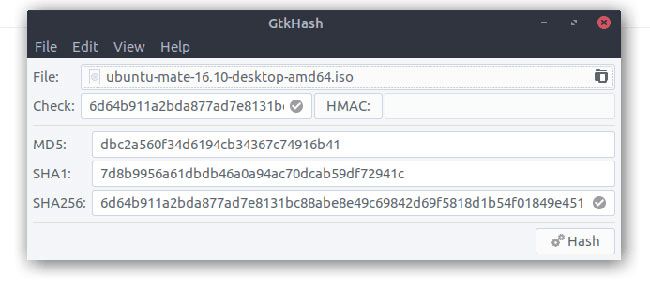

Obviously, The higher bit used in the algorithm, the better. The most commonly used algorithms used to generate the checksum are MD5 and SHA family (SHA1, SHA256, SHA384, and SHA512). To calculate the 128 bit MD5 hash of a file, run this command: md5 If you need the same output format that md5sum has, use this.
#Md5 checksum mac mac os
Mac OS X, does not come with md5sum installed by default, but it comes with an equivalent tool that you can use instead. If they are the same, you are OK, if not, you need to transfer the file again. Because the MD5 hash algorithm always produces the same output for the same given input, users can compare a hash of the source file with a newly created hash of the destination file to check that it is intact and unmodified. MD5 hashes are also used to ensure the data integrity of files. In Finder type the command you want for the hash function you want to run (eg openssl sha1 ) and then drop all of the files you want to generate hashes for on to the Terminal window from Finder. The best method is to use Finder and openssl. If you want to generate hashes for multiple files, its really simple. Or you can simply let the application calculate a checksum. It can compare files as well as a file with a checksum-string. MD5 is a utility that lets you create and compare MD5 checksums. Whether you want to verify the checksum of an MD5 or an SHA encrypted file or generate a new hash value for any text, Hash Generator is what you need. Hash Generator even lets you export the complete list of hash values to a text, HTML, XML, or CSV file.


 0 kommentar(er)
0 kommentar(er)
